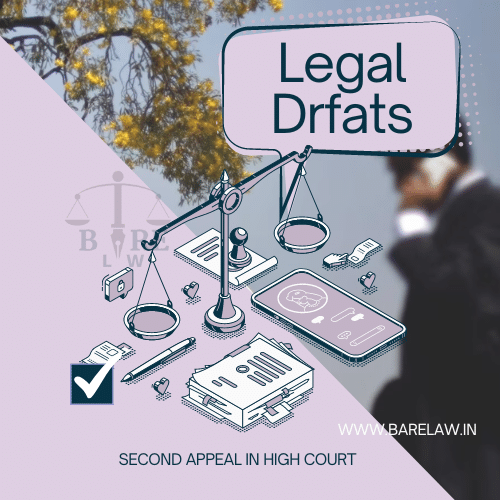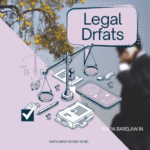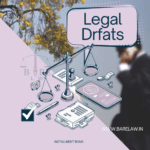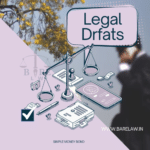
SECURITY BOND TO BE GIVEN ON ORDER BEING MADE TO STAY EXECUTION OF DECREE (O. 41, R. 5. ).
Table of Contents
To
This security bond on stay of execution of decree executed by……………… witnesseth:
That………………. the plaintiff in Suit No………………. of 19………………. having sued………………, the defendant, in this Court and a decree having been passed on the…………… day of……………… 19……………… in favour of the plaintiff, and the defendant having preferred an appeal from the said decree in the……………… Court, the said appeal is still pending.
Now the plaintiff decree-holder having applied to execute the decree, the defendant has made an application praying for stay of execution andhas been called upon to furnish security. Accordingly I, of my own free will, stand security to the extent of Rs………………. mortgaging the properties specified in the schedule hereunto annexed, and covenant that if the decree of the first Court be confirmed or varied by the Appellate Court the said defendant shall duly act in accordance with the decree of the Appellate Court and shall pay whatever may be payable by him thereunder, and if he should fails therein then any amount so payable shall be realized from the properties hereby mortgaged, and if the proceeds of the sale of the said properties are insufficient to pay the amount due, aid my legal representatives will be personally liable to pay the balance. To this effect I execute this security bond this……………… day of……………… 19………………
Schedule
(Signed)
Witnessed by
1……………….
2……………….
CASE LAW
Order 41, Rule 5
SCOPE OF THE PROVISION—REFUND TO JUDGMENT-DEBTOR WHEN NOT PROPER.
In the absence of an order of stay the decree was executable and the judgment-debtor deposited the decretal dues in the Executive Court. Once the decretal dues
had come into the Executing Court there was indeed no justification for the direction to refund the same to the judgment-debtor. On the other, the High Court could in its discretion either direct payment of the amount to the decree-holder subject to the terms safeguarding the interest of the judgment-debtor in the eventuality of reversal of the decree or direct the amount to be deposited or invested on terms of interest so that on the disposal of the first appeal appropriate directions could be given1.
SCOPE OF THE RULE
There is no universal practice of granting stay in every case in which appeal is filed. It must be asked for and obtained according to facts of the case. This rule equally applies to pre-emption decrees also. It is undoubtedly true that it is a piratical right but once it is granted, it has all the force of a decree and there is no reason why a different rule with regard to the execution of such a decree should be adopted2.
NON-MAINTAINABILITY OF APPEAL AGAINST ORDER OF SINGLE JUDGE.
It could never have been intended by the Legislature that a Division Bench of the High Court might be allowed to hear appeals against orders of interlocutory nature passed by a single Judge on applications like O. 41, R. 5, C. P. C. or other stay applications under Article 226 or along with petitions under the Company law unless those orders finally and conclusively determine the right of the parties in those proceedings’.
APPLICATION TO APPEAL IN FORMA PAUPERIS
(O. 44, R. 1.)
(Title)
I………………………………………………………………. the above-named, present the accompanying memorandum of appeal from the decree in the above suit and apply to be allowed to appeal as a pauper.
Annexed is a full and true schedule of all the movable and immovable property belonging to me with the estimated value thereof.
Dated the……………………. day of…………………………. 19………………
(Signed)
[Note— Where the application is by the plaintiff he should state whether he applied and was allowed to sue in the Court of first instance as a pauper].
1. Certtral Bank of India v. State of Gujarat and others. (1987) 4 S. C. C. 407.
2. Naib Singh v. Bikrama Singh, 1972 R. L. R. 315.
3. Radhey Shyam v. Sita Ram, A. I. R. 1981 Raj. 105.
Barelaw, an online platform dedicated to delivering comprehensive legal knowledge, proudly presents its exclusive category of case briefs. This section is meticulously crafted to offer insightful analyses of landmark judgments, providing a valuable resource for legal professionals, students, and anyone interested in understanding the intricacies of law. Our case briefs delve deep into pivotal court decisions, exploring the rationale behind each judgment and its impact on the legal landscape.
We understand that navigating the complexities of legal judgments can be challenging. That’s why our case briefs are designed to be both informative and accessible, ensuring that readers gain a clear understanding of the key legal principles involved. Each brief includes a summary of the facts, the legal issue at hand, the court’s reasoning, and the ultimate decision. This structured approach makes it easier for our audience to grasp the nuances of each case.
Our website is a treasure trove of legal wisdom, constantly updated with the latest and most significant cases. Whether you’re a law student seeking to enhance your knowledge, a practicing attorney looking for a quick reference, or simply a curious mind eager to understand the law’s evolution, Barelaw is your go-to destination
Explore our case briefs and immerse yourself in the world of law. Visit our website now and discover the wealth of legal knowledge at your fingertips. The link is provided below for your convenience and direct access to our expansive legal database
You can access more legal drafts here – https://www.barelaw.in/legal-drafts/





